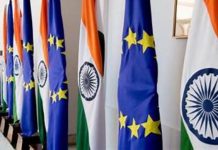The Muslim world, comprising over 1.8 billion people across 57 countries, faces complex challenges—political conflicts, economic disparities, and religious extremism. Two major organizations, the Organization of Islamic Cooperation (OIC) and the Arab League, have long sought to address these issues. However, their effectiveness remains debatable..
Strengths of OIC and Arab League
The OIC, with 57 member states, serves as the largest collective voice of the Muslim world. It has mediated conflicts, such as the Afghanistan reconciliation process, and advocated for Palestinian rights at the UN. The Arab League, though smaller (22 members), has played a role in crises like the Yemen war and Libya negotiations.
Both organizations have launched aid programs. The OIC’s Islamic Development Bank funds infrastructure projects, while the Arab League coordinates economic policies among members.
The OIC promotes Islamic solidarity, condemning Islamophobia globally. The Arab League preserves Arab identity through cultural exchanges and media collaborations.
Weaknesses and Failures
Neither body has strong mechanisms to implement decisions. The OIC’s resolutions on Kashmir and Palestine often go unheeded, while the Arab League failed to prevent the Syria war or Gulf diplomatic rifts.
Geopolitical rivalries (Saudi-Iran tensions, Turkey-Arab disputes) paralyze decision-making. The Arab League is split between pro-US and anti-Western blocs, weakening collective action.
Both organizations suffer from slow, consensus-based processes. The OIC’s response to crises like the Rohingya genocide was delayed, and the Arab League’s economic integration lags behind ASEAN or the EU.
Given these limitations, there is a strong case for a more effective, action-oriented body to represent the Muslim world.
A smaller, more agile organization (e.g., a “G20 of Muslim Nations”) could bypass bureaucratic hurdles. A dedicated trade bloc, like an “Islamic Common Market,” could reduce dependency on the West. A neutral, military-backed peacekeeping force could intervene in crises like Sudan or Afghanistan.
The OIC and Arab League have symbolic value but lack teeth. Instead of creating a new body from scratch, reforming the OIC with stricter compliance mechanisms, a rapid-response crisis unit, and economic integration plans may be more practical. However, if divisions persist, a coalition of willing nations—perhaps led by Turkey, Malaysia, Indonesia and Pakistan—could pioneer a more effective platform.
The Muslim world needs unity and decisive leadership. Whether through revitalizing existing bodies or establishing a new one, the time for passive diplomacy is over. Without bold steps, the ummah’s voice will remain fragmented in an increasingly polarized world.

















